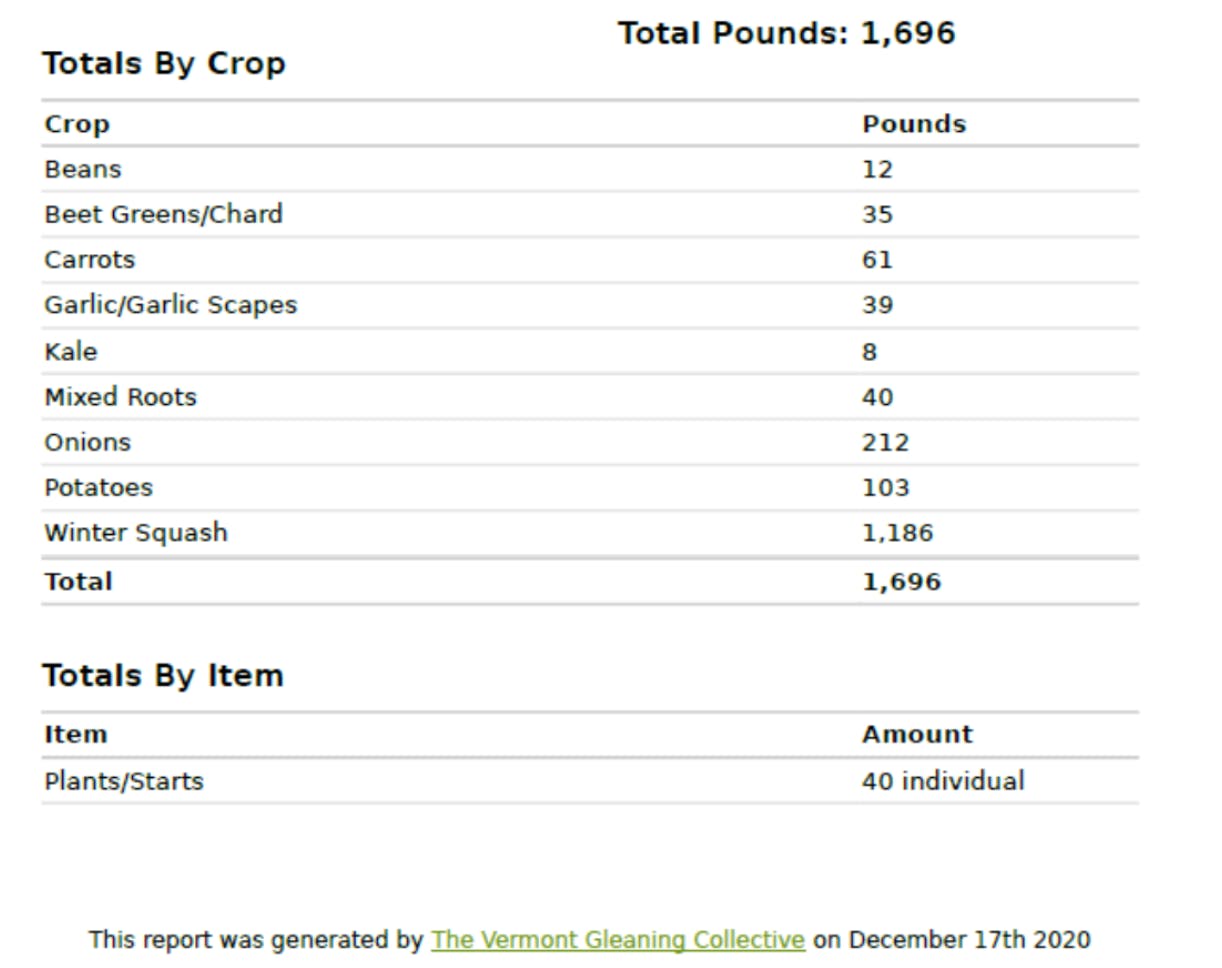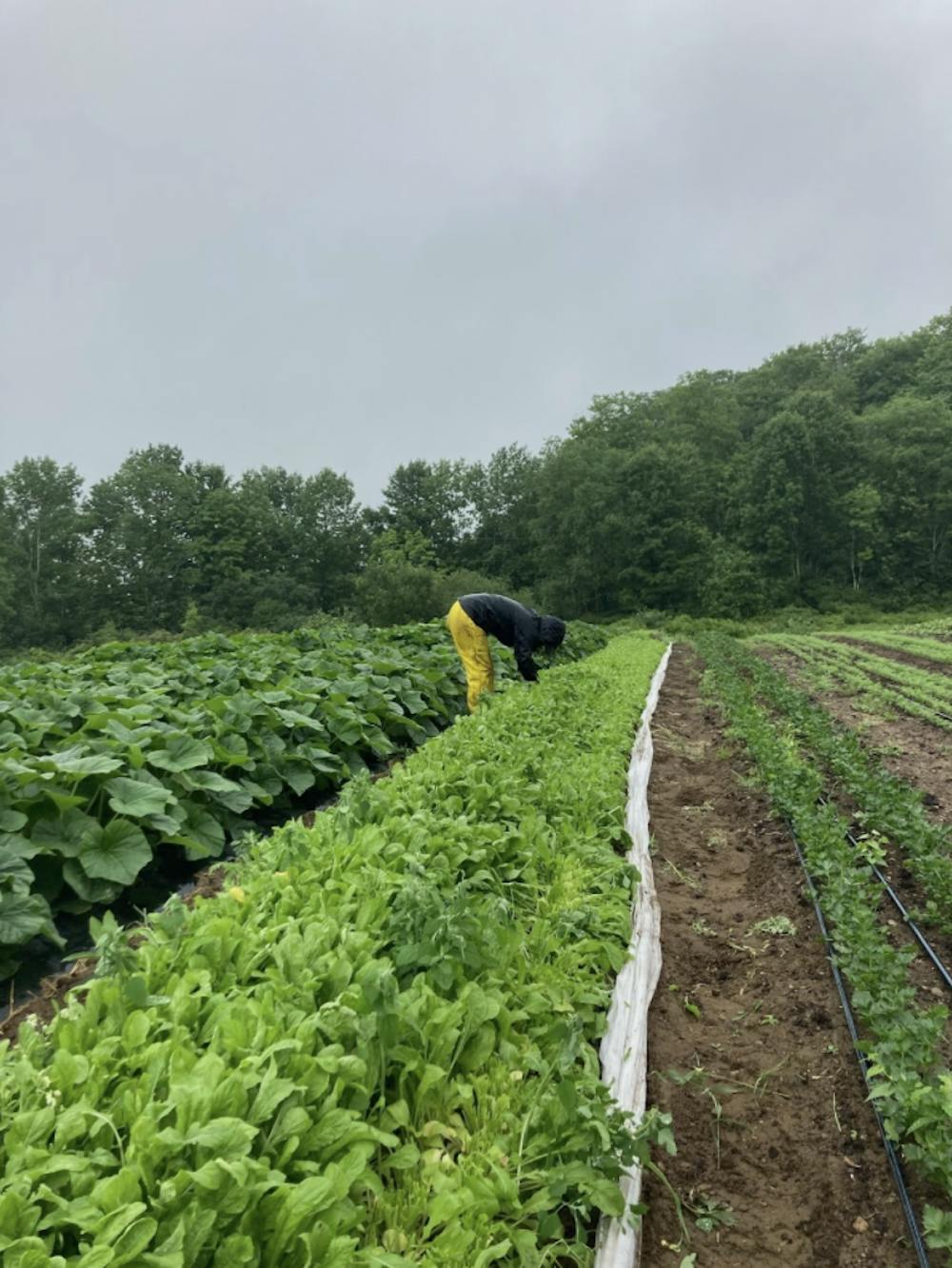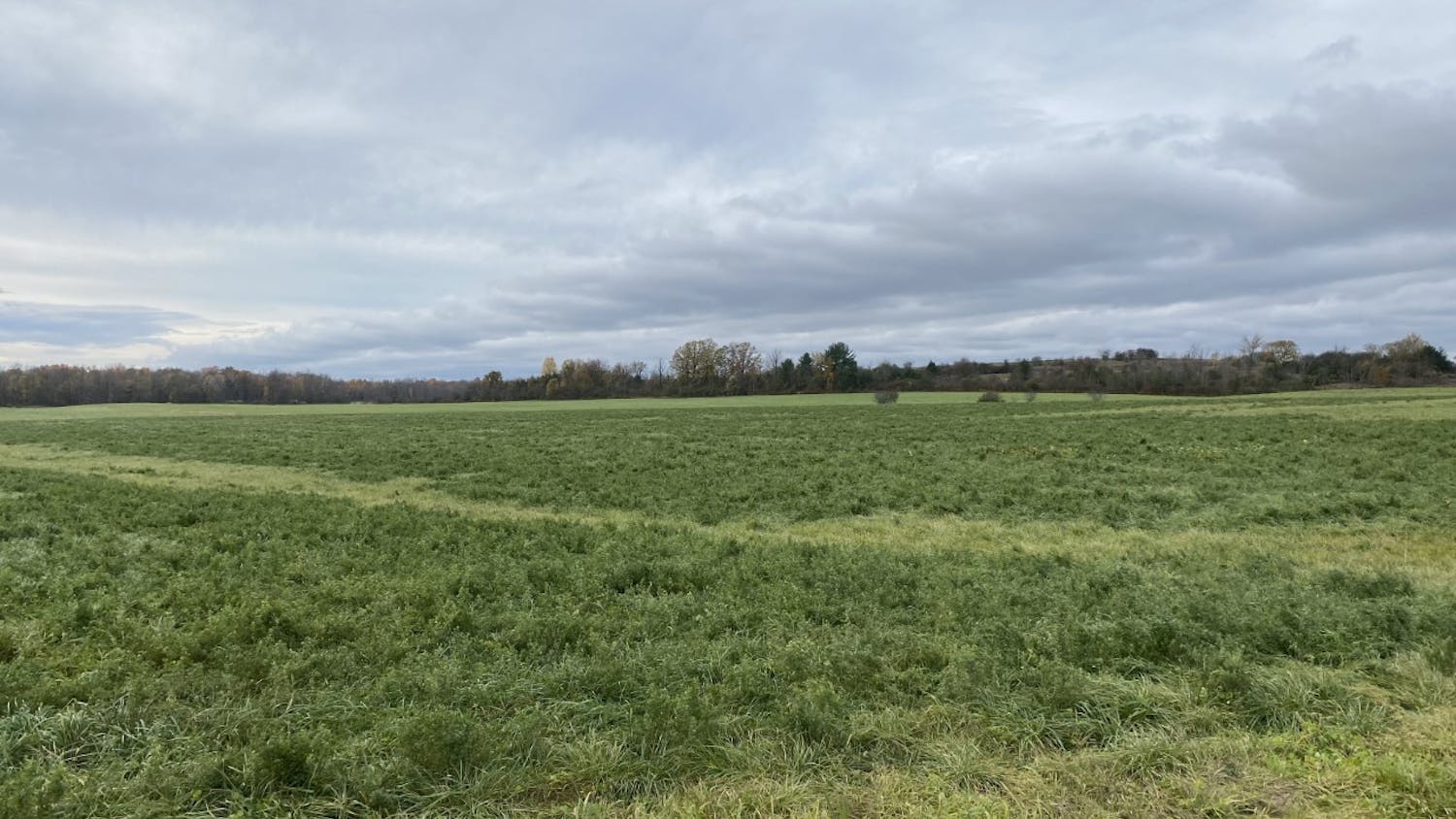For the past twelve years, The Knoll has been growing produce for a Middlebury-based nonprofit that aims to improve the lives of low-income Addison County residents. Helping Overcome Poverty’s Effects, or HOPE, accepts donations from the Knoll and other local farms for their food shelf located at 282 Boardman St. in the town of Middlebury.
According to the 2020 Knoll Food and Garden Educator’s Report, the organic garden, “arranged with HOPE to grow a few specific crops to supplement their gleaning efforts that supply the food shelf in Middlebury.” Gleaning is defined as harvesting leftover crops from a farmers’ field after the commercial harvest. The report stated that “these [2020 crops] totaled almost 1700 pounds of produce distributed to our local community.”
Jay Leshinsky, one of the founders of the Knoll and its first farm educator from 2003 to 2017, initially established the partnership between HOPE and the Knoll. He stated that the relationship came about when he and Jeanne Montross, the director of HOPE at the time, were both on the board of the Middlebury Natural Foods Co-Op and frequently discussed HOPE’s volunteer gleaning program.
“We saw right away that it was tough with a volunteer program,” Leshinky said. “It was hard for HOPE to coordinate the volunteers, so we decided in about 2008 that we would just start growing things for [HOPE] and deliver them.” HOPE would have to find volunteers in the local community willing to travel to farms and glean their extra crops.
From there, Leshinsky began conversations with the staff at HOPE about which crops were difficult for the organization to get at specific times of the year and how the Knoll could provide the most helpful crops.
Typically, the HOPE gleaning coordinator would have to find a group of volunteers to go out to an orchard or farm and glean the excess crops. With the assistance of the Knoll’s student volunteers, however, HOPE needed to do less gleaning at local farms and could instead focus on other initiatives.
Sophia Calvi ’04, the current director of programs at the Franklin Environmental Center and one of the students involved in the founding of the Knoll, said that it is much easier for an educational garden to adjust what they are growing to HOPE’s needs than it is for a commercial farm.
“[We asked] what is it that you need that you aren’t getting at the food shelf,” Calvi said. This resulted in shifting the Knoll’s primary crops to butternut squash, green beans, garlic, and onions, she explained.
The partnership developed further in 2009, when Corinne Almquist ’09, a then-recent graduate, received the Compton Fellowship for a year-long sustainability project. Almquist was interested in the practice of gleaning and knew there was a gleaning network in northern Vermont called Salvation Farms.
“[I liked the idea of] trying to assist with that effort of making a statewide gleaning network,” Almquist said. She knew that Leshinsky had already been bringing extra produce to HOPE, but there was no established gleaning program in place. So, Almquist spent the year of her fellowship developing a network of farmers that would notify her when they had excess crops and a group of volunteers that would pick up or transport the crops.
Once her fellowship was over, Almquist established an intern position to serve her role of coordinating the gleaning and transportation efforts. “It became such a hit at HOPE that they really wanted to be able to continue that project after I left after the year,” Almquist said.
Isabela Bahadorzadeh ’23 was an intern with HOPE in the summer of 2021, after she completed an internship with the Knoll during the 2020–21 school year. She said the eight-week summer internship included connecting with farmers who frequently donate, as well as coordinating the pick-up of already leftover produce. She also worked routinely on distributing food from HOPE to local community partners, such as the Open Door Clinic, the Bristol School System summer meals program, the Mary Johnson Preschool farmers’ market and some retirement homes.
“A lot of people fall through the cracks, and HOPE tries to patch that up with community partnerships,” Bahadorzadeh said. “[Vermont is] kind of a perfect size for what HOPE is trying to do. It feels like it’s on a scale that is small but also so far-reaching.”
Bahadorzadeh said that, looking ahead to the winter, HOPE will be shifting its focus to assembling holiday boxes for Thanksgiving and the December holidays. Many of those boxes will be made possible by frozen squash from the Knoll’s summer and fall donations.
According to Leshinsky, the partnership between HOPE and the Knoll provides a great opportunity for students to learn in the garden and for the college to help a local nonprofit’s goals of addressing hunger and poverty. Leshinsky added that “it’s all about learning, and vegetables are just the tools.”


Maggie Reynolds '24 (she/her) is the Editor in Chief.
Maggie previously served as the Senior Local Editor, a Local Section Editor, and a Staff Writer. She spent this past J-term interning for VTDigger, covering topics from affordable housing in Addison County to town government scandals. She also interned for Seven Days VT as an arts & culture reporter summer 2022 and as a news reporter for the Daily Gazette in Schenectady, NY summer 2021.
Maggie is majoring in History and minoring in Political Science and Spanish. She was a three-year member of the Women's Swimming and Diving team. Maggie enjoys running, hiking, and iced maple lattes.



